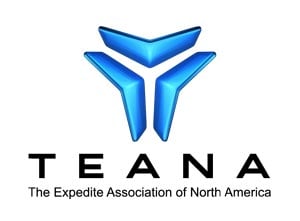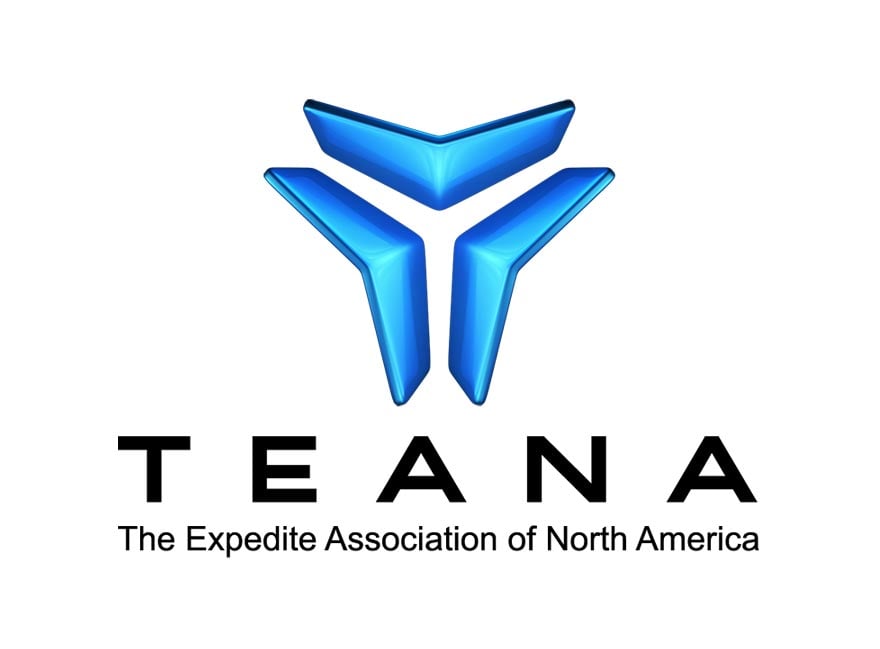
Contents
FMCSA has extended its emergency declaration regarding COVID-19 through May 31, 2022. For the latest version and other guidance related to COVID-19 is available at www.fmcsa.dot.gov/COVID-19. Note that use of the declaration now requires monthly reporting by carriers.
Regulation and Enforcement
- Biden administration suffers setbacks on independent contractor policies
- FMCSA seeks applications for task force on lease agreements
- Hutcheson nominated to serve as FMCSA administrator
- DOT inspector general reviews FMCSA grants of authority to Mexican carriers
- Soaring inflation means bigger civil penalties from DOT agencies
- Werner obtains exemption for drivers who have passed the CDL skills test
Legislation
- Senate passes Ocean Shipping Reform Act, sends measure to House
- Sen. Lee, Rep. Fischbach introduce revised port relief bills
Advocacy and Comment
Regulation and Enforcement
Biden administration suffers setbacks on independent contractor policies
The Department of Labor (DOL) in March lost battles in both the courts and Congress in its efforts to reverse Trump administration policies regarding use of independent contractors. On March 14, a federal judge in Texas ruled that DOL had violated the Administrative Procedure Act (APA) when it rescinded a January 2021 rule that sought to clarify the definition of “independent contractor” under the Fair Labor Standards Act (FLSA).
The rule was to take effect March 8, 2021, but after President Biden took office, the DOL rule was one of many regulations that were held in abeyance pending a review. DOL then proposed first to delay the rule 60 days under a 19-day comment period and later proposed and then finalized a rule to withdraw the Trump administration rule after a 31-day comment period.
In her opinion, Judge Marcia Crone of the Eastern District of Texas, ruled that by refusing to consider alternatives to the total withdrawal of the rule, DOL failed to consider important aspects of the problem before it, which was the lack of clarity of the economic realities test and the need for regulatory certainty.
“As a practical matter, in the absence of a uniform regulation that is consistent throughout the nation, a worker’s classification as an independent contractor or an employee is dependent on the happenstance of geography, i.e., the judicial circuit in which the worker resides or works,” Judge Crone ruled. “This outcome falls short of providing clarity to the workforce of the United States or to those who compensate them.”
The Biden administration’s second defeat came on March 30 when the U.S. Senate failed to stop a filibuster of the nomination of David Weil to be administrator of DOL’s Wage and Hour Division. Although cloture on filibusters of nominations require only a majority vote (as opposed to the 60 votes needed to invoke cloture on legislation), the motion to end debate failed to garner the support of even all Democrats. The motion failed 43 to 57, and President Biden formally withdrew the nomination on April 7.
The failure of Weil’s nomination is significant because Weil had held the same post for three years under the Obama administration and had pursued a policy hostile toward use of independent contractors. For example, in July 2015, Weil issued an interpretation concluding that most workers were employees under FSLA. One of the goals of the Trump administration’s January 2021 was to thwart use of such interpretations to undermine use of independent contractors.
FMCSA seeks applications for task force on lease agreements
FMCSA is accepting applications until May 6 for membership in the agency’s Truck Leasing Task Force (TLTF), which was mandated by last year’s infrastructure act. The TLTF will evaluate the impacts of commercial motor vehicle (CMV) lease agreements and discuss best practices for future agreements. As established by the legislation, the TLTF will cover many areas related to truck leasing arrangements, including:
- Exploring predatory truck leasing arrangements in coordination with DOL and the Consumer Financial Protection Bureau;
- Evaluating common truck lease agreements and their terms, identifying and reviewing those that are potentially inequitable in the motor carrier industry;
- Reviewing agreements available to drayage drivers at ports;
- Studying the impact of truck leasing agreements on the net compensation of CMV drivers;
- Examining truck leasing arrangements and financing arrangements among motor carriers, entry-level drivers, driver training providers, and others involved in the industry; and
- Assessing resources that assist CMV drivers in reviewing the financial impacts of leasing agreements.
The TLTF will include a maximum of 10 members representing labor organizations, motor carriers, consumer protection groups, legal professionals, owner-operators, and other relevant businesses. The task force, which is chartered through February 11, 2024, will examine those issues and submit a report to FMCSA and DOL. In announcing the TLTF, FMCSA said it encourages “diverse, non-traditional representatives, especially women and people of color” to apply. For more information, visit www.fmcsa.dot.gov/tltf.
Hutcheson nominated to serve as FMCSA administrator
President Biden has nominated Robin Hutcheson as FMCSA administrator. DOT Secretary Pete Buttigieg named Hutcheson deputy FMCSA in January, replacing Meera Joshi, who had departed the agency to become a deputy mayor of New York City. As deputy administrator, Hutcheson, who previously served as DOT deputy assistant secretary for safety policy, also serves as acting administrator. Prior to joining DOT in January 2021, Hutcheson was director of public works for the City of Minneapolis. Before that post, she had served as transportation director for Salt Lake City.
DOT inspector general reviews FMCSA grants of authority to Mexican carriers
As directed by the United States-Mexico-Canada Agreement (USMCA) Statement of Administrative Action, the DOT Office of Inspector General is conducting a review of FMCSA grants of operating authorities to carriers for conducting operations beyond border commercial zones.
Pursuant to the USMCA Implementation Act, in August 2021, FMCSA submitted a report to Congress on all existing grants of operating authority to, and pending applications for operating authority from, all Mexico-domiciled and Mexican-owned or -controlled motor property carriers with authority to operate beyond border commercial zones. The objectives for this review will be to determine whether FMCSA (1) met requirements in authorizing Mexico-domiciled and Mexican-owned or ‑controlled motor carriers to conduct long-haul trucking operations beyond border commercial zones and (2) monitored those carriers to ensure they are operating safely.
Soaring inflation means bigger civil penalties from DOT agencies
The Department of Transportation in March published its mandatory annual update of civil penalties for the department and its modal agencies to reflect inflation, and the surge in pricing during the pandemic means that the adjustment is much larger than typical. The rule, which was effective March 21, reflects an increase of 6.222%, which was the 12-month change in the Consumer Price Index between October 2020 and October 2021. In recent years, the adjustment frequently has been less than 2%. For the revised schedule of civil penalties, visit https://www.federalregister.gov/d/2022-04456.
Werner obtains exemption for drivers who have passed the CDL skills test
FMCSA has granted an application from Werner Enterprises, Inc. for an exemption allowing commercial learner's permit (CLP) holders who have successfully passed the commercial driver's license (CDL) skills test but who have not received the CDL document to drive a CMV without having a CDL holder seated beside them in the CMV. Under the exemption, the CDL must be present in the truck, but not necessarily in the passenger seat. For the Federal Register notice, visit https://www.federalregister.gov/d/2022-06796.
Legislation
Senate passes Ocean Shipping Reform Act, sends measure to House
The U.S. Senate on March 31 passed legislation (S. 3580) that would increase the authority of the Federal Maritime Commission (FMC) to intervene in order to promotive the competitiveness of the ocean transportation system. The requires the FMC to investigate complaints about detention and demurrage charges charged by common ocean carriers and to determine whether those charges are reasonable. If charges are found to be unreasonable, FMC would order refunds. S. 3580 also prohibits common ocean carriers, marine terminal operators, or ocean transportation intermediaries from unreasonably refusing cargo space when available or resorting to other unfair or unjustly discriminatory methods. For more information, visit https://www.congress.gov/bill/117th-congress/senate-bill/3580.
Senate passage sends H.R. 3580 to the House, which in December passed its own version (H.R. 4996) of ocean shipping reform. The next steps for the legislation are unclear. For more information on the House version of the bill, visit https://www.congress.gov/bill/117th-congress/house-bill/4996.
Sen. Lee, Rep. Fischbach introduce revised port relief bills
Sen. Mike Lee (R-Utah) and Rep. Michelle Fischbach (R-Minnesota) have introduced legislation (S. 3807, H.R. 7456) aimed at relieving the port congestion that has contributed to supply chain challenges. The bills, which are mostly the same as those (S. 3252, H.R. 6028) Lee and Fischbach introduced in November, would grant several temporary regulatory waivers and actions to help alleviate some of the stress in freight networks.
Several provisions of the bills are specific to trucking. One would require FMCSA to temporarily waive hours-of-service requirements for truck drivers and motor carriers who are transporting cargo directly to or from a U.S. port. Another would require the agency to temporarily allow 18-year-old drivers to receive a temporary commercial driver’s license for (1) the transportation of cargo to or from a U.S. port or (2) to assume the commercial operations of a truck driver who has been re-routed to a U.S. port. Other provisions would make Department of Defense intermodal equipment available to trucking companies and would expedite applications for Transportation Worker Identification Credentials (TWIC) for workers needed to provide direct assistance to a U.S. port. For more information, visit https://www.congress.gov/bill/117th-congress/senate-bill/3807 and https://www.congress.gov/bill/117th-congress/house-bill/7456.
Advocacy and Comment
In addition to the Truck Leasing Task Force discussed above, another administration created group will consider driver compensation and detention issues. See https://www.transportation.gov/tags/biden-harris-trucking-action-plan.
To understand the politics surrounding these driver related initiatives, you may wish to watch the following YouTube video entitled, “John Oliver Explains How Truck Drivers Get Paid, How Often They Don’t, And How Companies Exploit Them To Increase Profits.” This video has almost 4 million views, 113,000 likes, and no negative comments - https://youtu.be/phieTCxQRLA.
Our Process lorem ipsum dolor sit amet, consectetur adipiscing elit. Nunc vulputate libero et velit interdum, ac aliquet odio mattis.
Value prop lorem ipsum
Ut posuere hendrerit nisl metus neque. Facilisis quis adipiscing a molestie. Tempor turpis tincidunt nulla diam in. Nec etiam ut neque placerat mauris nulla. Semper hendrerit at urna orci in faucibus sit lacus. Tincidunt fermentum consequat.
SEE OTHER CITIES WE SERVICE IN THIS STATE
Value prop lorem ipsum
Ut posuere hendrerit nisl metus neque. Facilisis quis adipiscing a molestie. Tempor turpis tincidunt nulla diam in. Nec etiam ut neque placerat mauris nulla. Semper hendrerit at urna orci in faucibus sit lacus. Tincidunt fermentum consequat.
SEE OTHER CITIES WE SERVICE IN THIS STATE
Related Blog Posts

Regulatory and Legislative Update - December 2021
Contents FMCSA has extended its emergency declaration regarding COVID-19 through February 28. For the latest version and other guidance related to COVID-19 is available at www.fmcsa.dot.gov/COVID-19. Note that use of the declaration now requires monthly reporting by carriers. Legislation House passes ocean shipping reform bill House passes Build Back Better Act House bill would federalize major crash lawsuits, criminalize staging of crashes...

Regulatory and Legislative Update - February 2025
Contents Regulation and Enforcement FMCSA reopens comment period on broker transparency Truck Leasing Task Force issues final report opposing lease-purchase programs DOT appoints several FMCSA officials FMCSA withdraws several pending rulemaking following regulatory freeze Nomination hearing for Trump’s DOL pick slated for February 19 Trump orders 10-for-1 deregulation initiative EPA refers Biden administration’s CARB waivers to Congress...

Regulatory and Legislative Update - March 2021
Contents FMCSA has extended its emergency declaration regarding COVID-19 through May 31. For the latest version and other guidance related to COVID-19 is available at www.fmcsa.dot.gov/COVID-19. Regulation and Enforcement DOL postpones effective date on independent contractor rule DOL withdraws opinions sleeper berth pay, independent contractor status SBA takes steps to improve PPP access for very small businesses FMCSA postpones effective date...

Regulatory and Legislative Update - February 2022
Contents FMCSA has extended its emergency declaration regarding COVID-19 through February 28. For the latest version and other guidance related to COVID-19 is available at www.fmcsa.dot.gov/COVID-19. Note that use of the declaration now requires monthly reporting by carriers. Regulation and Enforcement Safety fitness procedures apparently are next on FMCSA’s regulatory agenda FMCSA adopts new vision standards for commercial drivers FMCSA...

Regulatory and Legislative Update - April 2024
Regulatory and legislative news for April 2024 includes the FMCSA renewing consideration of knowledge/proficiency exams for carriers and brokers, the FMCSA inviting comments on its plan for a new online registration platform and Hawaii seeking exemption on student transportation options. The FMCSA is also set to revise a younger driver pilot program. Contents Regulation and Enforcement FMCSA renews consideration of knowledge/proficiency exams...

Regulatory and Legislative Update - October 2021
Contents Regulation and Enforcement DOT seeks input on ‘supply chain resilience’ in freight and logistics FMCSA rule to link clearinghouse data to CDL Reporting requirement for FMCSA COVID declaration kicked in October 1 FMCSA renews steel company’s exemptions from HOS and securement rules Oak Harbor Freight Lines seeks exemption on driver training instructors Keep Truckin seeks windshield exemption Legislation Infrastructure bill remains in...

Regulatory and Legislative Update - May 2022
Contents FMCSA has extended its emergency declaration regarding COVID-19 through May 31, 2022. For the latest version and other guidance related to COVID-19 is available at www.fmcsa.dot.gov/COVID-19. Note that use of the declaration now requires monthly reporting by carriers. Regulation and Enforcement FMCSA resurrects plan to require speed limiters on heavy trucks FMCSA revisits state inspection programs for passenger carriers Final rule...

Regulatory and Legislative Update - September 2023
Contents Regulation and Enforcement FMCSA relaunches effort to revamp safety fitness determinations FMCSA proposes a federal appeals process for DataQs DOL proposes to guarantee overtime pay for more workers Lawless named FMCSA assistant administrator and chief safety officer Two devices removed from list of registered ELDs FMCSA announces grants for CDL programs, infrastructure Alaskan ice road school denied skills test exemption Hawaii seeks...

Regulatory and Legislative Update - March 2022
Contents FMCSA has extended its emergency declaration regarding COVID-19 through February 28. For the latest version and other guidance related to COVID-19 is available at www.fmcsa.dot.gov/COVID-19. Note that use of the declaration now requires monthly reporting by carriers. Regulation and Enforcement FMCSA removes x-ray exam from definition of ‘medical treatment’ FMCSA drops mandate that drivers disclose traffic violations to employers FMCSA...

Regulatory and Legislative Update - March 2024
Regulatory and legislative updates for March include the FMCSA awarding $180 million in grants to promote CMV safety, finalizing a rule governing billing practices, CVSA opening nominations for driver award, the FMCSA updating ELD guidance related to cross border transportation and more. Contents Regulation and Enforcement FMCSA to award $180 million in grants to promote CMV safety FMC finalizes rule governing billing practices for demurrage and...

Regulatory and Legislative Update - September 2021
Contents Regulation and Enforcement FMCSA seeks feedback on Part 379 records retention requirements FMCSA extends COVID enforcement relief, seeks carrier reports on its use CVSA policy adopted as certification standards for driver/vehicle inspections Comments due September 23 on MRB report regarding alternative vision standard FMCSA plans to renew consumer complaint database FMCSA seeks approval for information collection related to waivers and...

Regulatory and Legislative Update - November 2022
Contents Regulation and Enforcement DOL proposes to reverse Trump-era rule on worker classification under FLSA FMCSA’s COVID-19 emergency declaration ends FMCSA rejects SBTC exemption related to the language skills requirement School bus group receives CDL testing exemption regarding engine compartments FMCSA renews UPS exemption from certain ELD requirements FMCSA renews ELD exemption for motion picture-related drivers Legislation House bill...
WHAT IS HOT SHOT TRUCKING? AKA HOTSHOT TRUCKING
Modern business is all about strict timelines. Whether your field is manufacturing, extraction, retail, or research and development, your operations are bound to rely on activities that operate in tandem. The most minor of supply shortages can throw these activities off, potentially costing you thousands of dollars just for a few hours' delay. Success thus hinges on your ability to right the ship as quickly as possible after a supply shortage arises.
Industries We Serve
Modern day hot shot trucking provides the speed and exclusivity you need to meet the most demanding and time-sensitive shipping requirements. We use every resource, avenue, and channel available to ship your freight by ground or air. Designed specifically to address supply and distribution problems that arise without warning, hotshot trucking tactics involve coordinating a network of carriers in a variety of locations. By calling on the vehicles closest to your supply or distribution points, hotshot brokers can fill any sudden gaps in your supply network almost as soon as they happen. This minimizes the disruption to your business and allows you to quickly return to ordinary operations, weathering the storm without skipping a beat.
Automotive
The automotive supply chain already has significant challenges. Don’t let malfunctioning equipment stop the production line. Step on the gas with HotShotTrucking.com’s suite of services that will get you back in the fast lane. With HotShotTrucking.com, companies are devising shipping strategies to swiftly deliver critical parts and equipment — whether it's ground expedite service with sprinter vans, box trucks and 53-foot tractor trailers or air freight and air cargo.
Aviation & Aerospace
Every moment a commercial airliner sits on the ground, it costs an airline money. Expedited freight services by HotShotTrucking.com can get you back in the air with prompt delivery of parts and equipment throughout North America. We are equipped with the expertise to navigate the complexities of shipping jet engines and other types of loads, and our network of hot shot drivers has extensive experience transporting aviation assets.
Construction
One shipping delay can snowball and cause delays throughout your entire project. You need an experienced 3PL provider who understands the construction industry and has the logistical reach to deliver your freight on time, anywhere. That 3PL partner is HotShotTrucking.com. Whether in the air or on the ground via truck and trailer, we can connect companies to expedited freight services for the prompt delivery of parts and equipment throughout North America.
Mining & Metals
From cranes to chemicals to excavators to conveyor belts, HotShotTrucking.com has the experience and industry know-how required for shipping sensitive, oversized, and hazardous equipment. Third-party hot shot trucking and logistics providers such as HotShotTrucking.com specialize in devising and implementing innovative shipping solutions, ensuring mines can swiftly return to operation. We’ll pick up your shipment, deliver it to the airport and receive it at the other end – providing hand-carried service as necessary or required.
Manufacturing
Every moment a manufacturing facility or factory sits idle costs a company money because of the high costs involved. With many manufacturers building to only just-in-time production rates, any disruption threatens parts and vehicle inventories. This is where the speed and expertise of freight services from HotShotTrucking.com can make a difference throughout the entire manufacturing supply chain. We do all the logistical legwork to find the optimal solution for your job, whether it's an exclusive air charter or expedited ground shipping.
Telecommunications
From servers to cell towers, information, voice, and data must flow to keep businesses, production, and the public online and connected. When equipment goes dark, depend on HotShotTrucking.com to get your systems flashing green again. This is where the speed and experience of trucking and freight services from HotShotTrucking.com can help. Our hot shot truck network excels at the prompt delivery of parts and equipment throughout North America.
Oil & Gas
The oil and gas industry faces challenging conditions in offshore and onshore oil rigs, often in remote locations with limited infrastructure. Don’t let oil pumps or pipelines sit idle waiting for equipment. By having the right plans, parts, people, and logistics partner like HotShotTrucking.com, you can effectively mitigate plant or pump downtime, unscheduled disruptions, and equipment failures.
Cost of Urgent Shipping
Which of our specialized shipping services best fits your needs?
Blog and Resource Center
How AirFreight.com Solved a PGA Tour Shipping Emergency
Learn how AirFreight.com located a lost shipment and helped save the PGA Golf Tour.
How AirFreight.com Saved The Farm By Solving A Major Shipping Delay
Learn how we saved a Montana-based artisanal farm thousands of dollars by expediting a shipment of perishable goods.
Expedited Shipping Vendor Comparison
We’ve done the research for you. This vendor comparison sheet breaks down how AirFreight.com stacks up against the competition.

talk to an expeditor now
Get a Quote in Minutes for Your Time-Critical Freight Needs
GET A QUOTE
